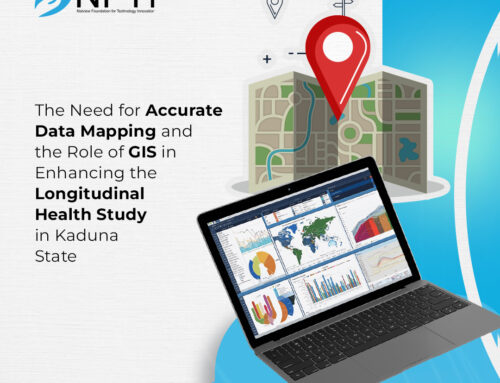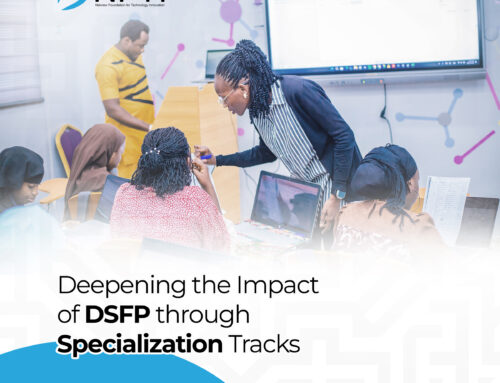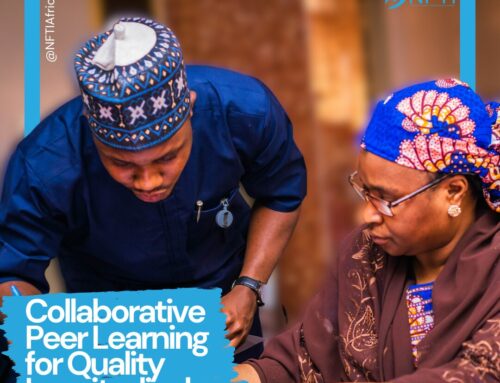Growing up as a child in northern Nigeria, I can vividly recall the scramble that would ensue in the neighborhood whenever we heard the horn of the candy floss seller (popularly known as alewa in the Hausa language). Kids would dash indoors, begging their parents for spare change, while others frantically searched under couch cushions and other places where we hid money we got from our grandparents. The arrival of the seller was always unpredictable, as he came around only once in a long while, and our reaction was always the same: chaotic and rushed, often leaving us with nothing. Looking back, it’s amusing how a little foresight, like setting aside a coin in anticipation, could have saved us the frenzy. Unfortunately, many governments worldwide operate in this manner; responding reactively to socio-economic issues.
Imagine a different scenario where we knew the seller’s schedule and were prepared in advance. That’s the power of being proactive versus reactive, and on a much larger scale, this is where data comes in for governments.
Governments have to cope with a wide range of concerns, including public health crises, climate change, unemployment, and infrastructure development. To effectively address these difficulties, governments must shift away from reactive, ad-hoc measures and toward proactive, data-driven policies. But what exactly does it mean for a government to be proactive rather than reactive, and how does data play an important role in this transformation?
Historically, most African governments have been reactive. They would react to crises or challenges as they occurred, frequently searching for solutions after the fact. This method is not only inefficient but also expensive, both financially and socially. For example, responding to a natural disaster without proper planning can result in severe losses in terms of lives, infrastructure, and resources. Reactive governance frequently traps governments in an endless loop of crisis management. This system of governance isn’t inherently bad, but it is often considered less effective compared to proactive governance. Responding swiftly to emergencies or unanticipated problems is possible under reactive governance. Because they don’t adhere strictly to pre-set plans but instead swiftly adapt to changing reality, reactive techniques often show flexibility.
Proactive governance entails predicting problems before they escalate into crises. It is about foreseeing potential problems, assessing risks, and taking preemptive actions to mitigate or even eliminate those issues. Governments that take a proactive approach can improve resource allocation, boost public trust, and secure better outcomes for their communities.
You might have heard the classic adage, “If you think education is expensive, try ignorance.” The same reasoning applies to not investing in evidence-based policymaking. Ignorance—whether purposeful or owing to a lack of robust data—has a high cost. When governments rely on guesswork or outdated techniques rather than evidence, they risk inefficient resource allocation, ineffective interventions, and exacerbated societal problems. Investing in extensive data gathering and analysis, on the other hand, ensures that policies are smart, proactive responses to real-world difficulties rather than reactive stopgaps. Evidence-based decisions ultimately save money, time, and, most importantly, lives.
Data provides the foundation for proactive governance. Governments can shift from reactive to proactive planning by collecting, evaluating, and acting on data. Data analytics has helped identify patterns and trends that support governments in foreseeing potential issues. In healthcare, for instance, the Kaduna State Primary Health Care Board’s Human Resource for Health Management Information System project, funded by donor organizations and implemented by NFTI, demonstrates the effectiveness that can be accomplished in our public health institutions. As the system enters the operational phase, it is expected to have a substantial impact on the Kaduna State Primary Health Care Board’s human resource management standards, thereby improving healthcare services for Kaduna State citizens.
Effective resource allocation is critical for any government. Proactive governments have used data to identify the areas and sectors that require the greatest attention, allowing them to focus resources where they are most needed. NFTI is supporting the Kaduna State Health Supplies Management Agency (KADHSMA) to identify critical gaps and areas of highest need in the health supply chain. By studying trends and patterns, we give actionable insights that allow KADHSMA to strategically allocate resources to critical medical supplies and underserved locations. This proactive strategy guarantees that life-saving drugs and equipment reach individuals in most need or in short supply, eliminating waste, increasing healthcare outcomes, and strengthening the Kaduna State health system as a whole.
Accessing real-time data improves decision-making by allowing decision-makers to address challenges as they arise rather than reacting after the problem has escalated. This principle was demonstrated during a recent Focused Group Discussion (FGD) that brought together key health sector stakeholders such as cold chain officers, LGA monitoring and evaluation officers, drug officers, and the NFTI team to improve the process flow for essential drugs and vaccines.
The discussion was part of an ongoing effort to better understand trends identified in an ongoing longitudinal study of stock management, forecasting, and reporting. The NFTI and its stakeholders found major gaps in data use and stock level predictions by analyzing requisition processes, reporting frameworks, and stock management. The FGD’s real-time insights helped participants at the state, LGA, and facility levels to better define roles, streamline responsibilities, and improve data management processes.
The way governments handle social sector challenges is being transformed by data-driven insights. With the support of NFTI and the Kaduna State Bureau of Statistics (KDBS), the Data Lab project revolutionized data management in various industries in Kaduna State. The project was funded by the Bill & Melinda Gates Foundation (BMGF), which has established a solid framework for the methodical gathering, processing, and sharing of data. The state’s ability to use evidence for decision-making has been enhanced by this endeavor, especially in vital socioeconomic sectors such as health, education, etc. The administration of Kaduna State, for instance, is already informing their 2025 budget with insights obtained through the Data Lab. This shows that there has been a noticeable change toward data-driven governance, in which evidence, not assumptions, determines the allocation of resources. Policymakers build public trust this way, as data-driven governance guarantees transparency and accountability.
While the benefits of data-driven governance are apparent, adopting such systems has its own set of challenges. Governments and development partners must make large investments in technology, infrastructure, and personnel to build effective data collection, storage, and analysis systems. Aside from that, crucial issues such as data privacy and cybersecurity necessitate close attention to protect citizens’ information. Equally important is cultivating a culture transformation within governmental organizations. Embracing a data-driven strategy necessitates that policymakers and authorities adopt evidence-based decision-making, representing a considerable shift from conventional approaches. This transition necessitates acceptance by all stakeholders and willingness to adopt new technologies, which requires robust commitments on the part of everyone to modernization, capacity building, and the establishment of accountability structures that guarantee data is both actionable and effective.
The truth is, these challenges can be totally daunting for any government, even with adequate funding support. This is where the Natview Foundation for Technology and Innovation (NFTI) becomes a trusted partner for governments venturing into data-driven governance. Our expertise lies in navigating these challenges with tailored solutions that simplify complex processes and empower institutions to leverage data effectively. Whether it’s establishing systems for secure data collection and storage, developing analytical frameworks, or capacity building for employees to use insights for decision-making, NFTI has the tools, knowledge, experience, and innovation to drive this transition. We fully understand the reality of government operations and are ready to collaborate to facilitate a seamless cultural transition to evidence-based governance. Our foundation offers end-to-end support, ranging from data privacy issues to workflow optimization, to help governments overcome challenges and realize data’s full potential for policymaking and citizen welfare. With us as your trusted partner, policymakers and citizens can look forward to a better future driven by practical insights for proactive governance.





